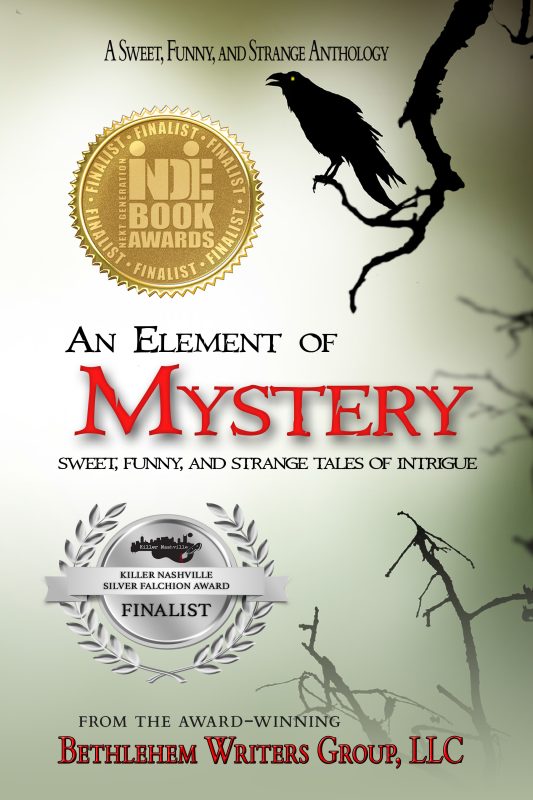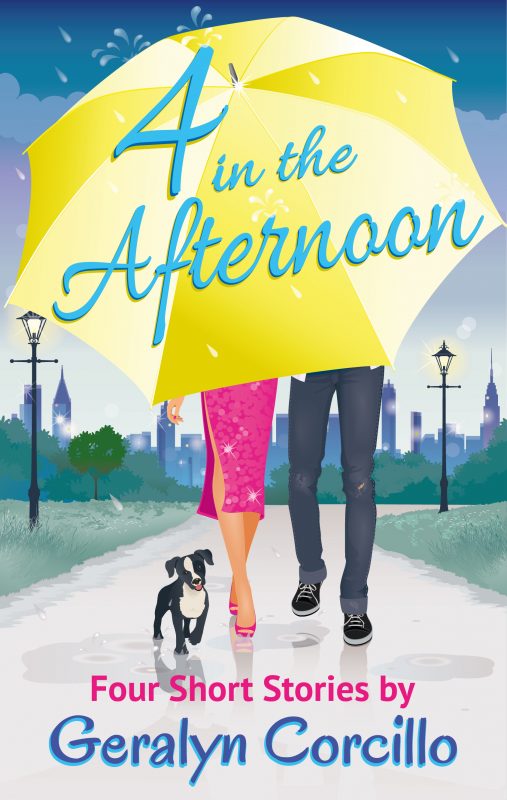Wings of Silk Book Tour and Giveaway
November 4, 2021 by marianne h donley in category Apples & Oranges by Marianne H. Donley, Rabt Book Tours tagged as #Giveaway, #RABTBookTours, @RABTBookTours, Li-Ying Lundquist, Wings of Slik
Historical Fiction
Published: November 2, 2021
Publisher: Acorn Publishing
After surviving a childhood under the oppressive rule of Chairman Mao’s “Cultural Revolution,” a young, courageous teenager abandons her life in China for the freedom of the unknown in America. Arriving at the New York City doorstep of family members she’s never met, Ying-Ying has been promised they’ll help her learn English and accomplish her dream of attaining a college degree. But weeks later, she’s kicked out without explanation. Now a homeless immigrant, Ying-Ying must learn who to trust, how to find work, and how to succeed in a bustling metropolis that looks the other way. Overcoming obstacles of abandonment, heartbreak, and injustice in a foreign land, she remains fiercely determined to become a woman who will impact the world. An incredible story of second chances, Wings of Silk reminds the reader that underneath the fragile form of an individual, a strong and resilient heart is always ready to take flight.
About the Author
Li-Ying Lundquist was born and raised in China under the strict regime of Chairman Mao’s “Cultural Revolution.” The daughter of intellectual parents, her life was in constant danger and she grew up believing academic performance and perfectionism were the keys to survival and fulfillment. After high school, following a strong desire to find freedom and get to know family members who lived in the United States, Li-Ying left her life in China to pursue the American dream.
Overcoming the plights of a young immigrant who did not speak the language, Li-Ying obtained her master’s in computer science from a prestigious university and became a successful lead engineer. While working for AT&T Bell Labs, she and her team made the world’s first “text message” for mobile phones.
Today, she is happily married to a wonderful man and has two darling sons whom she loves with all her heart. An advocate of freedom founded on self-respect and happiness, she hopes readers of Wings of Silk will be inspired by the lessons of forgiveness, grace, and God’s powerful love.
Contact Link
Purchase Links
I believe there is not a single soul in this world that understands my disappointments, exhaustion, and hopelessness. I assume both Francis and Kaito are married and have their own children now. I don’t want to burden them, plus they must hate me: I am the one who broke up with them. I even start to think I am a horrible human being, unworthy of any happiness.
Soon I think of suicide, and the negative come without reprieve. Life is too hard. I’m such an imperfect person and I deserve an awful marriage. This overwhelming pain is also impacting my child. I have little happiness in my life, and nothing I’m looking forward to. The American Dream I’ve worked so hard for isn’t enough. I am extremely depressed and my hope is so nonexistent that I just want it all to end. I research methods of suicide and ruminate over which way I should go about it.
One night, I’m determined to do it. I decide I’ll try to overdose on pills. I scour all of our medicine cabinets, and have my pill cocktail all ready to take before I go to bed. Dylan is working late downstairs in his office, but he’ll be up later, and I want it to be him. I want it to be him who finds me and has to explain this to everyone. When it’s time to go to bed, I burst into tears. I sit on the bathroom floor, my face soaked and my body shaking as I talk myself into the commitment for what I’ve decided is the only answer for my future. There is no other. It’s terrible. I see no way out of the life I’ve buried myself in, and I tell myself that if I do this, everyone else will be better off too. No one wants such an empty and sinful person around.
Yes, that’s it.
I stand on shaky limbs. I fill up a cup with water that will help me swallow the handfuls of pills I’ve laid out. I watch the cup fill until my eyes are blurry and it begins to overflow in the sink. I never imagined this. I never thought my end would happen in such a manner. I never understood why someone would do this, but now I do. I thought death was the worst thing that could happen to a person, but now I know better. Suffering without any hope of a way out, that is worse.
I take a deep breath, and feel peace that soon this will all be over. I grab the first pill and take it. I grab the second pill and take it. I grab a third pill and take it. I grab the fourth, but hear Isabella. She is crying and calling for me. I can’t ignore her, and it’s probably best I say goodbye, take one last look at her.
I go into her room, and immediately take her into my arms, soothing her and telling her all the words I wish someone would say to me.
“It’s okay, my darling. It’s all going to be okay. You are safe. You are loved. I love you.”
She’s had a nightmare and tears have wet her face like they have mine. I stroke her hair and take in her face as she calms. As her breathing settles and she starts to fall back asleep, a smile creeps out from her lips. The sweetness of the moment makes me smile as well. I watch her sleep, and take in her room. Hanging on the wall is my butterfly kite. I hung it in her room when we moved into this house, but had forgotten it was there. I stare at it, and remember what it feels like to look back and see how far I’ve come. Though I’m ashamed of so much of my life, perhaps it shouldn’t be over yet. Perhaps, I’ll get stronger. Perhaps something more is out there for me. This thought is enough of a pull that when I go back to my room, I throw the rest of the pills away. For today, I want to be able to see Isabella’s smile tomorrow. I can’t miss that just yet. Deep down, I’m terrified one day I will lose control again to let this episode repeat.
I cannot do this to my darling Isabella.
0 1 Read more
Glamor Girl Blitz
October 6, 2021 by marianne h donley in category Apples & Oranges by Marianne H. Donley, Rabt Book Tours tagged as @RABTBookTours, Glamor Girl, historical fiction, The Fourniers, Vera Jane Cook
Date Published: 10-06-2021
Publisher: Indies United
Escaping from her childhood, Sheela, flees her aunt’s motel where she is forced to work as a cleaning maid and provide ‘favors’ for wealthy guests and winds up in Miami in Kit Malone’s fancy brothel. Beautiful and stately, Sheela becomes a high-class prostitute, a millionaire’s mistress and a Billy Rose showgirl. When she meets the love of her life in Manhattan, the charming but naïve Julius Clark, life blossoms into something both frightening and titillating. But when Sheela gives birth to her daughter, Fanny, it is this shadowy and stormy relationship that alters the course of both of their destinies and defines their future.
About the Author
Vera Jane Cook was born in New York City and has been a city girl ever since. As an only child, she turned to reading novels at an early age and was deeply influenced by an eclectic group of authors. Before Jane became a writer, she worked in the professional theatre and appeared on television, in regional theatre, film and off Broadway.
At the age of fifty Jane began to write novels. Some of her titles include Dancing Backward in Paradise, winner of an Eric Hoffer Award for publishing excellence and an Indie Excellence Award for notable new fiction, 2007. The Story of Sassy Sweetwater and Dancing Backward in Paradise received 5 Star ForeWord Clarion Reviews and The Story of Sassy Sweetwater was named a finalist for the ForeWord Book of the Year Awards. She has published in ESL Magazine, Christopher Street Magazine and has written early childhood curriculum for Weekly Reader and McGraw Hill.
Jane still lives on the upper west side of Manhattan right near Riverside Park, where she takes her delightful dogs, Peanut and Carly, for a jog,. She comes home to her spouse of thirty years and her two cats, Sassy and Sweetie Pie.
Contact Links
Purchase Links
0 0 Read more
Zither! Book Tour
September 23, 2021 by marianne h donley in category Apples & Oranges by Marianne H. Donley, Rabt Book Tours tagged as #RABTBookTours, Jeffrey Hanlon, mystery, Zither!
Metafiction/Humor/Mystery
Date Published: April 20th, 2021
Publisher: Zither Studios
A nutty religious cult abducts a herd of prime gazebos (huh?) and it’s up to bumbling P.I. Mars Candiotti to rescue them. Mars, aspiring author, chronicles his quest in Jeffrey Hanlon’s comic mystery Zither.
Guided by his magically prescient IHOP waitress, Mars strives to mitigate the shocking global consequences of the gazebo heist, even though he has no idea what the word mitigate means. Mars has five Important clues with which to solve his confounding mystery: Butterscotch, John Travolta, Trombones Venetian Blinds, and Wind Chimes.
As Zither swallows its own tale, Mars finds it increasingly tricky to distinguish between real people and his rambunctious fictional characters. Zither becomes the romper room where his reality meets fantasy – and get frisky with each other.
Using his (odd) clues, Mars’ international odyssey leads to an explosive conclusion in Panama. TVs around the world tune in to watch live coverage of “Carnage in the Canal”.
Amid the lunatic havoc that is Zither there is (of course!) an epic love story as Mars meets Marian, the brainy librarian he had dreamed of. Marian says his books are “slapstick existentialism with subjective reality couched in parable”. (This is news to Mars). But is Marian real?
Is any of it real?
“Hanlon’s humor shines bright and will leave fans of such madness wanting more.” Publishers Weekly
“This zany, rollicking mystery adventure is as compelling as it is hilarious.” Independent Book Review
Nominated for the prestigious Audie Award, Best Fiction 2021
About the Author
I was born in a Southern California beach town.
Zither!
Jeffrey Hanlon
Excerpt
As nightfall approached, we prepared.
Pete disguised himself as management, putting on a nice Men’s Wearhouse suit with a bleeding turnip lapel pin.
I disguised myself as Britney Spears.
At the stroke of midnight, Pete and I left his house and headed for the St. Francis Yacht Club.
As contrived luck would have it, Benny Tisdale had left the cabin on his dumb boat unlocked.
In stealthy fashion, Pete and I went below.
“I’ll shine the flashlight and listen for footprints. You find the varnish,” Pete said.
It took no time at all to find Benny’s Man O’ War. Actually, it took a bit of time, but you know what I mean.
As Pete held the light, I donned my surgical gloves and placed Benny’s Man O’ War in my black op bag.
“Easy as taking candy from a drowning man,” Pete whispered.
I nodded.
Pete said, “It’s dark in here, Mars. If you’re going to nod, warn me so I can shine the flashlight on your head.”
“Okay, Pete. We’ll make that a new rule.”
As we prepared to exit in stealthy fashion, Pete shined his flashlight around the cabin, then said, “Mars, look at this big wooden crate.”
I looked at the wooden crate. It was big enough to hold a Barcalounger.
“I’ll bet it’s filled with ill-gotten booties,” Pete said. “Or a Barcalounger.”
He handed me the flashlight and pried open the crate’s lid with a crowbar.
It was not until some time after dark that we took courage to get up and throw the body overboard. It was then loathsome beyond expression, and so far decayed that, as Peters attempted to lift it, an entire leg came off in his grasp . . .
“Peters?” Pete said. “Do you mean Pete? Me? What body? What leg?”
“Sorry. That’s Edgar Allen Poe, The Narrative of Arthur Gordon Pym.“
“What’s Poe doing in this chapter?”
I shined the flashlight on my shoulder and shrugged.
He snatched the light back, looked in the crate, and said, aghast, “We’ve gotta get outta here quick, Mars! This boat could blow any minute!”
I looked inside the big wooden crate.
Here is what was in there: hundreds, probably thousands, of Steven Seagal movies.
We’d be lucky to get out of there alive. Seagal movies have a tendency to bomb.
Third Time’s the Harm Book Tour and Excerpt
September 16, 2021 by marianne h donley in category Apples & Oranges by Marianne H. Donley, Rabt Book Tours tagged as #Mystery, #RABTBookTours, #ThirdTimestheHarm, Acorn Publishing, Deco Desk Mystery, Loran Holt
Jamie Whitehall Olivian has received a mysterious letter from her Uncle James. She is named after him, but she has never seen, met, or heard him mentioned in any way.
Until now.
And he has died and left her his entire estate. But it seems Uncle James wants her to investigate a murder.
His, that is.
It also seems the estate is contingent upon her acceptance of this commission. Jamie wants no part of the investigation or of the estate. She gets along perfectly well, thank you very much, a fact she emphasizes to his lawyer, who just happens to be gorgeous, making it a little harder to say no.
Things take a strange turn when the victim himself asks her to reconsider. For reasons unknown, Uncle James has been unable to depart for the afterlife and is stuck in his Art Deco desk.
Jamie decides to take on the job of niece and sleuth, with no experience at either, and she and Uncle James set out to find the killer. They are aided by the lawyer and a not-as-gorgeous and slightly rumpled homicide detective whose interest seems to be more than just finding a murderer.
About The Author
If you live in Southern California, you’re either a writer or an actor, right? As Professor Emerita from California State University, Long Beach, Loran Holt chose the writing path. Third Times the Harm is one of the results of her efforts, the first book of a series featuring reluctant sleuth, Jamie Whitehall Olivian. Holt is also the author of Nightmasters: Doubles Talk, a sword-and-sorcery epic, published by Acorn, as well. You will find her non-fiction, film-and-fashion books under the name Lora Ann Sigler.
Contact Links
Purchase Links
Third Time’s the Harm
Excerpt
“Who’s up for dessert?” Rising, I changed the subject.
Dennis followed me, “I’ll help you bring it out.”
Not wanting to make a scene, I gave in and let him accompany me to the kitchen. I expected the third degree. What I didn’t expect was what I got.
With a smothered exclamation I couldn’t translate, Dennis wrapped both arms around me like an anaconda, and, pressing me to the back of the kitchen door, proceeded to kiss me like a man drowning. After a few seconds, I was the one drowning. I had somehow forgotten how to use my lungs, and very quickly my knees followed suit. If he hadn’t been leaning into me with the full Monty, I would have slithered to the floor like that same anaconda.
Finally regaining some sanity, and in desperate need of air, I pushed him slightly away. Only slightly, I’m not crazy–and did a little gasping.
He must have noticed what I had noticed; because his face pinked, and he moved in the dessert direction, clearing his throat. “I guess the plates should go in now.” Giving me a hint of dimple, he added, “Well, you did ask who was up for dessert.”
Hunting Teddy Roosevelt Book Tour and Excerpt
September 8, 2021 by marianne h donley in category Rabt Book Tours, Writing tagged as #excerpt, @RABTBookTours, Hunting Teddy RooseveltHistorical Fiction
Date Published: 7/31/2020
Publisher: Regal House Publishing
It’s 1909, and Teddy Roosevelt is not only hunting in Africa, he’s being hunted. The safari is a time of discovery, both personal and political. In Africa, Roosevelt encounters Sudanese slave traders, Belgian colonial atrocities, and German preparations for war. He reconnects with a childhood sweetheart, Maggie, now a globe-trotting newspaper reporter sent by William Randolph Hearst to chronicle safari adventures and uncover the former president’s future political plans. But James Pierpont Morgan, the most powerful private citizen of his era, wants Roosevelt out of politics permanently. Afraid that the trust-busting president’s return to power will be disastrous for American business, he plants a killer on the safari staff to arrange a fatal accident. Roosevelt narrowly escapes the killer’s traps while leading two hundred and sixty-four men on foot through the savannas, jungles, and semi-deserts of Kenya, Tanzania, Uganda, Congo, and Sudan.
About the Author
James A. Ross has at various times been a Peace Corps Volunteer, a CBS News Producer in the Congo, a Congressional Staffer and a Wall Street Lawyer. His short fiction has appeared in numerous literary publications and his short story, Aux Secours, was nominated for a Pushcart prize. His debut historical novel, HUNTING TEDDY ROOSEVELT won the Independent Press Distinguished Favorite Award for historical fiction, and was shortlisted for the Goethe Historical Fiction Award. His debut mystery/thriller, COLDWATER REVENGE, launched in April 2021 and is available wherever books are sold. Ross’s on-line stories and live performances can be found at: https://jamesrossauthor.com.
Contact Links
Purchase Links
A man always has two reasons for what he does—a good reason, and the real one.
J. P. Morgan
NEW YORK CITY
WINTER 1908
THIRTY-TWO YEARS LATER
J. P. Morgan stood at a window of his Manhattan townhouse and watched his two guests alight from separate horse-drawn carriages. Neither was aware he was about to help plan the assassination of the outgoing president of the United States.
Andrew Carnegie, aging steel tycoon and the wealthiest man in the world, emerged from his plain black coach accompanied by a grey-coated footman who brushed snow from the old man’s cape and lent an arm for support. Behind him, William Randolph Hearst emerged unassisted from a gold-trimmed carriage as large and gaudy as Carnegie’s was plain. Ignoring the wind and the cold, the newspaper publisher lifted his chin toward lower Manhattan as if to survey a tiny portion of his rapidly growing dominion. Then turning toward the townhouse, he mounted the snow-covered stairs two at a time.
Inside, a uniformed butler ushered Hearst and Carnegie into the library, while another brought hot cider in a silver pitcher to the teetotaler Carnegie, and a Cointreau to the newspaperman Hearst.
“Gentleman,” said J. P. Morgan when the butler had finished serving libations and closed the twenty-foot high mahogany doors behind him. “Our esteemed and soon to be ex-president, Theodore Roosevelt, has decided to follow George Washington’s example and not run for a third term. When he leaves office in a few weeks, he will lead an expedition to Africa to collect specimens of various game animals for the Smithsonian Museum and the New York Museum of Natural History.”
“Hear, hear,” said Hearst.
Carnegie fixed a rheumy eye on Morgan and said nothing.
“The museum sponsors will be content if our beloved president slaughters a sufficient number of beasts to fill their exhibit halls, but we, the financial and journalistic backers of the Roosevelt safari, have different measures of success. I’ve asked you here so that we might discuss what we hope to gain from our respective investments of money and newsprint, to help each other if possible, and, at a minimum, to avoid working at cross purposes.”
Carnegie put down his cup of hot cider and waved a bony finger at Morgan. “We know what you want, Pierpont: Roosevelt out of the country for a year so you can work with his successor to undo all that trust-busting nonsense. If he should take up with some African princess and never come back, so much the better!”
Morgan inclined his head. “Indeed, Andrew. I believe our cowboy president to be a fool of the worst kind: capable, energetic, convinced of his own myopic wisdom, enormously popular, and damn near unstoppable. But as long as he intends to gift the country with a temporary respite from his overbearing personality, I would like to use that gift to good purpose. As do you.”
Carnegie drove the tip of his mahogany cane into the Persian rug at his feet. “Yes. To put those fine qualities you just listed to work for a higher purpose—peace and progress.”
Morgan cocked his head.
“Unlike you, Pierpont, I’m fond of our presidential cyclone. He doesn’t understand business. We all know that. But he’s a force of nature. Unstoppable. Once he’s out of office, I want to harness that force on behalf of progress.”
Hearst placed his Cointreau on the small rosewood table at his side. “What did you have in mind, Andrew?”
“World peace. As I’ve said and written.”
Hearst laughed. “Theodore Roosevelt? Cowboy, Rough Rider, builder of the Great White Fleet? He’s a warmonger, sir.”
“You should talk!” Carnegie snapped.
The self-assured young publisher seemed to enjoy provoking the older Carnegie, but Morgan needed both for what he had in mind.
Carnegie ignored Hearst and addressed himself to Morgan. “The Swedes gave Roosevelt their Nobel Prize for helping the Russians and Japanese mend their differences after Port Arthur. I want him do the same with the Kaiser, the French, and the British. To talk them out of their disastrous arms race. In exchange for my paying half the safari’s costs, our peace-loving president has agreed to stop in Berlin on his way back from Africa to meet with the German Kaiser. What I want, since you ask, are arrangements for his protection. I don’t care to spend a small fortune financing the largest safari in history, only to have some savage put an end to world peace with the point of a spear.”
Morgan exhaled a cloud of cigar smoke and watched it rise toward the Mowbray mural overhead. “U.S. Steel has the Pinkertons on permanent hire. I can arrange for them to guard President Roosevelt while he’s on safari. But is another European war such a bad thing? For America, I mean.”
Carnegie choked on his cider, glaring sideways at Hearst and then at Morgan. “Don’t tell me you’ve become a warmonger, too, Pierpont! I’ve spent half my life making steel and watching the god-awful things people do to each other with it. Do you know that there’s a cannon now that can hurl a hundred-pound shell thirty miles and level a whole city block? Guns that can fire a thousand bullets a minute? Modern war is insanity!”
Morgan exhaled a cloud of smoke and watched it rise toward the ceiling. “You misunderstand me, Andrew. I’ve read your books and I admire your principles. But the American economy is now as strong as any in Europe. If England, France and Germany get into another war and America stays out, that may be our nation’s chance to finally fulfill its destiny: to become the dominant global power and reap the rewards that go with it.”
Carnegie shook his head in disappointment.
Hearst rolled a cut glass tumbler between his palms and smiled. “An interesting point, Mr. Morgan. But I must confess that my newspapers are more experienced at promoting foreign wars than keeping us out of them.”
“A legacy I wouldn’t want to defend when my time came,” Carnegie muttered.
Morgan raised a hand. “What does Congressman Hearst see as a satisfactory outcome to the Roosevelt safari? Or Publisher Hearst, if you prefer.”
The newspaperman put down his drink. “They’re the same. Congressman and publisher both want an African version of the Buffalo Bill’s Wild West show. Ivory-fanged lions and dark African maidens. Not a word on domestic politics or global affairs. Theodore Roosevelt returns from Africa as famous as ever, but as a gaudy adventurer, not a serious politician. My newspapers will sell a million copies, and no one will consider Roosevelt a serious candidate if he decides to run for president again in 1912. Remember, his pledge was not to run for a third consecutive term. He left the door wide open for another nonconsecutive term.”
“Do you have someone else in mind for the position, Randolph?”
Hearst smiled and remained silent. Morgan knew perfectly well who the Hearst newspapers planned to promote as the next president of the United States—their owner and publisher, William Randolph Hearst.
Lighting his twentieth cigar of the day, Morgan tossed the cutting into a fifteenth-century Italian marble fireplace deep enough to roast several of Roosevelt’s African big game animals together. “Well gentlemen, our views of a successful African safari may differ, but our actions needn’t interfere with one another. I will arrange protection for Citizen Roosevelt to see that he comes to no harm before he can meet with the German Kaiser on behalf of world peace. I will use the coming months to educate the incoming administration on the benefits of a less hostile relationship with business. Mr. Hearst’s newspapers will provide ample coverage of African animal slaughter, but not a drop of ink about our former president’s idiotic views on global economics or business regulation. As long as we get what we want, Mr. Carnegie and I will continue to provide the Smithsonian with funds to pay for this enormous undertaking. Are we agreed?”
Hearst raised his tumbler. Carnegie nodded. Morgan suppressed a smile.
0 0 Read moreAffiliate Links
A Slice of Orange is an affiliate with some of the booksellers listed on this website, including Barnes & Nobel, Books A Million, iBooks, Kobo, and Smashwords. This means A Slice of Orange may earn a small advertising fee from sales made through the links used on this website. There are reminders of these affiliate links on the pages for individual books.
Search A Slice of Orange
Find a Column
Archives
Featured Books
FLORES AND MISS PAULA
Forgive me if I failed you. Remember that I always loved you.
More info →AN ELEMENT OF MYSTERTY: SWEET, FUNNY, AND STRANGE TALES OF INTRIGUE
Dare you read our latest Sweet, Funny, and Strange® Anthology?
More info →BECKONED, PART 5: ADRIFT IN COSTA RICA
How do you heal a broken heart?
More info →4 IN THE AFTERNOON
Dates, dogs, football, monsters in the attic, misunderstandings, and unexpected discoveries abound in these four romantic comedy short stories.
More info →Newsletter
Contributing Authors
Search A Slice of Orange
Find a Column
Archives
Authors in the Bookstore
- A. E. Decker
- A. J. Scudiere
- A.J. Sidransky
- A.M. Roark
- Abby Collette
- Alanna Lucus
- Albert Marrin
- Alice Duncan
- Alina K. Field
- Alison Green Myers
- Andi Lawrencovna
- Andrew C Raiford
- Angela Pryce
- Aviva Vaughn
- Barbara Ankrum
- Bethlehem Writers Group, LLC
- Carol L. Wright
- Celeste Barclay
- Christina Alexandra
- Christopher D. Ochs
- Claire Davon
- Claire Naden
- Courtnee Turner Hoyle
- Courtney Annicchiarico
- D. Lieber
- Daniel V. Meier Jr.
- Debra Dixon
- Debra H. Goldstein
- Debra Holland
- Dee Ann Palmer
- Denise M. Colby
- Diane Benefiel
- Diane Sismour
- Dianna Sinovic
- DT Krippene
- E.B. Dawson
- Emilie Dallaire
- Emily Brightwell
- Emily PW Murphy
- Fae Rowen
- Faith L. Justice
- Frances Amati
- Geralyn Corcillo
- Glynnis Campbell
- Greg Jolley
- H. O. Charles
- Jaclyn Roché
- Jacqueline Diamond
- Janet Lynn and Will Zeilinger
- Jaya Mehta
- Jeannine Atkins
- Jeff Baird
- Jenna Barwin
- Jenne Kern
- Jennifer D. Bokal
- Jennifer Lyon
- Jerome W. McFadden
- Jill Piscitello
- Jina Bacarr
- Jo A. Hiestand
- Jodi Bogert
- Jolina Petersheim
- Jonathan Maberry
- Joy Allyson
- Judy Duarte
- Justin Murphy
- Justine Davis
- Kat Martin
- Kidd Wadsworth
- Kitty Bucholtz
- Kristy Tate
- Larry Deibert
- Larry Hamilton
- Laura Drake
- Laurie Stevens
- Leslie Knowles
- Li-Ying Lundquist
- Linda Carroll-Bradd
- Linda Lappin
- Linda McLaughlin
- Linda O. Johnston
- Lisa Preston
- Lolo Paige
- Loran Holt
- Lynette M. Burrows
- Lyssa Kay Adams
- Madeline Ash
- Margarita Engle
- Marguerite Quantaine
- Marianne H. Donley
- Mary Castillo
- Maureen Klovers
- Megan Haskell
- Melanie Waterbury
- Melisa Rivero
- Melissa Chambers
- Melodie Winawer
- Meriam Wilhelm
- Mikel J. Wilson
- Mindy Neff
- Monica McCabe
- Nancy Brashear
- Neetu Malik
- Nikki Prince
- Once Upon Anthologies
- Paula Gail Benson
- Penny Reid
- Peter J Barbour
- Priscilla Oliveras
- R. H. Kohno
- Rachel Hailey
- Ralph Hieb
- Ramcy Diek
- Ransom Stephens
- Rebecca Forster
- Renae Wrich
- Roxy Matthews
- Ryder Hunte Clancy
- Sally Paradysz
- Sheila Colón-Bagley
- Simone de Muñoz
- Sophie Barnes
- Susan Kaye Quinn
- Susan Lynn Meyer
- Susan Squires
- T. D. Fox
- Tara C. Allred
- Tara Lain
- Tari Lynn Jewett
- Terri Osburn
- Tracy Reed
- Vera Jane Cook
- Vicki Crum
- Writing Something Romantic
Affiliate Links
A Slice of Orange is an affiliate with some of the booksellers listed on this website, including Barnes & Nobel, Books A Million, iBooks, Kobo, and Smashwords. This means A Slice of Orange may earn a small advertising fee from sales made through the links used on this website. There are reminders of these affiliate links on the pages for individual books.




















































